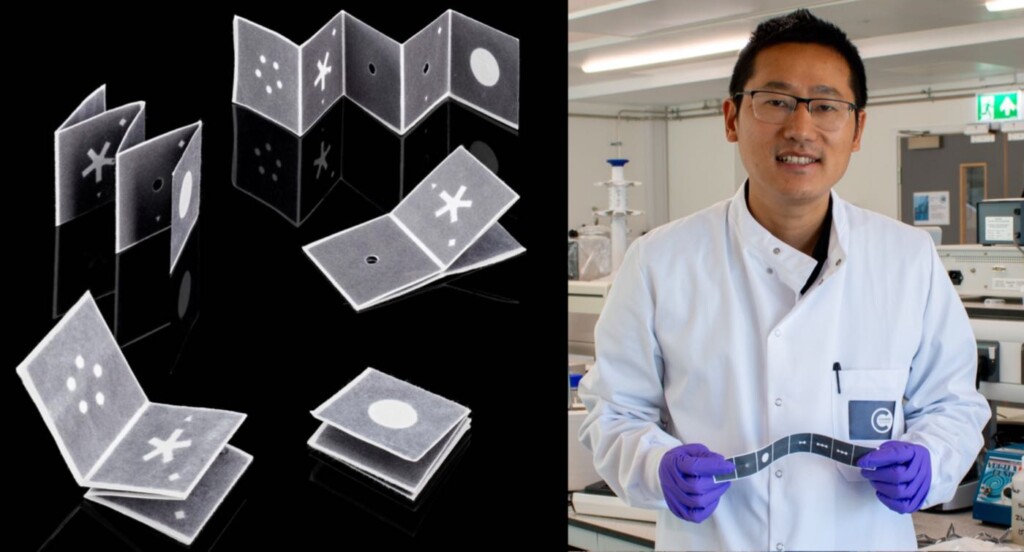
A cheap new test using origami paper sensors can help detect infectious diseases, such as COVID-19, much earlier and easier than current methods, say scientists.
The innovative method identifies biomarkers in wastewater, enabling rapid tracking of diseases using the camera in a mobile phone—and costs only a buck for each use.
Cranfield University researchers in England built on work conducted during the Covid pandemic, saying the new test device could dramatically change how public health measures are directed in any future pandemics.
Testing wastewater is one of the main ways to assess the prevalence of infectious diseases. Scientists take samples from water treatment plants nationwide and use the results to understand which areas have the highest infection rates—a method that was used during the Covid-19 pandemic.
Professor Zhugen Yang led the development of the new sentinel sensors, working with scientists from the University of Glasgow and Zhejiang University in China.
He began the research in 2020 to develop a test to detect the SARS-CoV-2 virus, Influenza A, and Influenza B in wastewater using a paper-based platform and ultraviolet torch or phone camera.
Until now, the most accurate ways of testing wastewater samples have been methods like the PCR test (polymerase chain reaction), which must be conducted in centralized laboratories by well-trained personnel.
That means samples are collected, stored, and transported under refrigeration to the lab location before being processed, which can take several days and is comparatively expensive.
ORIGAMI LOVES THE WORLD: Teen Girls Have Raised Over $1.5 Million for Clean Water Simply By Embracing Their Love of Origami
Prof. Yang described the new test in the journal Cell Reports Physical Science, calling it “rapid, user-friendly and portable”.
Wastewater samples are placed onto a wax-printed paper sheet which is folded in an ‘origami’ style. The paper contains chemicals that react to certain disease markers, triggering a fluorescent color to emerge.
Using a phone camera, the results can be read and the data collected easily shared.
“This could be a real game-changer when it comes to predicting disease rates and improving public health in the face of future pandemics.
“The simple test we have developed costs just £1 and uses the commonly available camera function in a mobile phone, making it readily accessible.”
WHAT ELSE IS BASED ON ORIGAMI? Origami-Inspired Solar Panel Could Start Generating Renewable Electricity From Your Window
At the peak of the pandemic in 2021, he performed tests at four quarantine hotels around Heathrow Airport.
The entire sample-to-answer process took less than 90 minutes compared to around four hours for a PCR test, with the process conducted in the basement of one of the hotels using minimal equipment.
Results showed that the new device gives results at least as accurate as the PCR test, but at a much lower cost—and can provide an early warning of disease in the community.
Yang says the device is particularly useful for areas with limited resource because of its ease of use, low cost and fast results.
“During Covid-19 we proved that fast community sewage analysis is a really effective way to track infectious diseases and help manage public health.”
CHECK OUT: A Rose Inspired Design For the Smartest Way to Collect And Purify Water
In the future, it could potentially be used to track new variants and help to establish whether the variant is still spreading in the community, as well as monitoring antimicrobial resistance. Further development is being sponsored by the Leverhulme Trust Research Leadership Scheme and a grant from the Biotechnology and Biological Sciences Research Council.
SHARE THE INNOVATION With Origami Lovers on Social Media…
